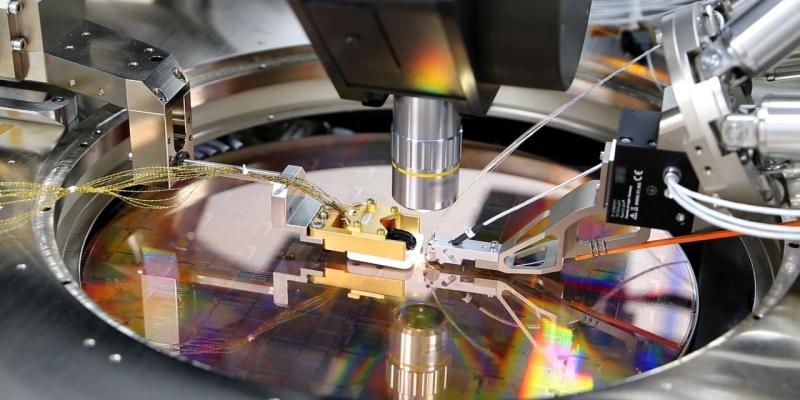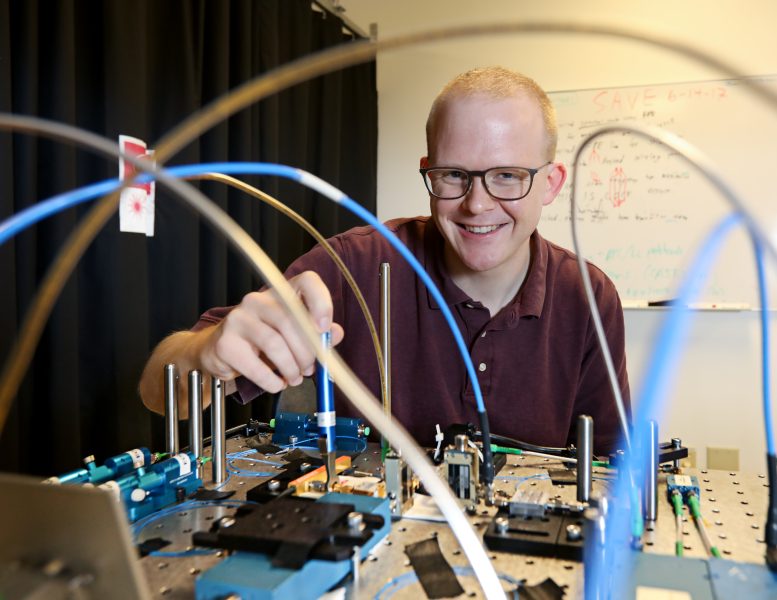PALO ALTO, Calif. – July 27, 2021 – PsiQuantum has raised $450 million in Series D funding to build the world’s first commercially viable quantum computer. The funding round was led by funds and accounts managed by BlackRock, along with participation from insiders including Baillie Gifford and M12 – Microsoft’s venture fund – and new investors including Blackbird Ventures and Temasek. PsiQuantum has now raised a total of $665 million in funding to date.
PsiQuantum was founded in 2016 by the world’s foremost quantum computing experts, who understood that a useful quantum computer required fault-tolerance and error correction, and therefore at least 1 million physical qubits. The company includes a growing team of world-class engineers and scientists who are working on the entire quantum computing stack, from the photonic and electronic chips, through packaging and control electronics, cryogenic systems, quantum architecture and fault tolerance, to quantum applications. In May 2020, the company started manufacturing the silicon photonic and electronic chips that form the foundation of the Q1 system, a significant system milestone in PsiQuantum’s roadmap to deliver a fault-tolerant quantum computer.
Quantum computing is anticipated to unlock the solutions to otherwise impossible problems, enabling extraordinary advances across a broad range of applications including climate, energy, healthcare, finance, agriculture, transportation, materials design, and more.
“Quantum computing is the most profoundly world-changing technology uncovered to date,” said Jeremy O’Brien, CEO and co-founder of PsiQuantum. “It is my conviction that the way to bring this technology into reality is by using photonics. Our company was founded on the understanding that leveraging semiconductor manufacturing is the only way to deliver the million qubits that are known to be required for error correction, a prerequisite for commercially valuable quantum computing applications. This funding round is a major vote of confidence for that approach.”
Unlike other quantum computing efforts, PsiQuantum is exclusively focused on building a fault-tolerant quantum computer supported by a scalable and proven manufacturing process. The company has developed a unique technology in which single photons (particles of light) are manipulated using photonic circuits which are patterned onto a silicon chip using standard semiconductor manufacturing processes. PsiQuantum is manufacturing quantum photonic chips, as well as the cryogenic electronic chips to control the qubits, using the advanced semiconductor tools in the production line of PsiQuantum’s manufacturing partner GlobalFoundries.
“A commercially viable, general-purpose quantum computer has the potential to create entirely new industries ready to address some the most urgent challenges we face, especially in climate, healthcare, and energy,” said Tony Kim, managing director at BlackRock. “To see this promising technology deployed within a reasonable time frame requires it to be built using a scalable manufacturing process. Silicon photonics combined with an advanced quantum architecture is the most promising approach we’ve seen to date.”
“Investing is about backing companies with the potential to deliver transformational growth,” said Luke Ward, investment manager at Baillie Gifford. “With its uniquely scalable approach, PsiQuantum is on track to deliver the world’s first useful quantum computer and unlock a powerful new era of innovation in the process. Whether it’s developing better battery materials, improving carbon capture techniques, or designing life-saving drugs in a fraction of the time, quantum computing is key to solving many of the world’s most demanding challenges.”
“We invested in PsiQuantum based on the strength of the company’s bold vision matched by a robust, disciplined, stepwise engineering plan to achieve that goal,” said Samir Kumar, managing director at Microsoft’s venture fund M12. “We are impressed by the technical progress we have seen in hardware development along with refinement of a novel quantum architecture ideally suited for photonics. PsiQuantum and Microsoft have a shared perspective on the need for a good number of logical qubits enabled by fault tolerance and error correction on 1 million-plus physical qubits, when it comes to building a truly useful quantum computer.”
When fault-tolerant quantum computers become available, humankind will be able to use them to solve otherwise impossible problems. PsiQuantum is currently working with global leaders in the healthcare, materials, electronics, financial, security, transportation, and energy sectors to identify and optimize algorithms and applications to support business readiness for the broad adoption of quantum computing. To learn more about PsiQuantum’s technology, visit www.psiquantum.com.
About PsiQuantum
Powered by breakthroughs in silicon photonics and quantum architecture, PsiQuantum is on course to build the world’s first commercially viable quantum computer to solve some of the world’s most important challenges. PsiQuantum believes silicon photonics is the only way to achieve the necessary scale required for error correction and deliver a fault-tolerant, general-purpose quantum computer. With quantum chips now being manufactured in a world-leading semiconductor fab, PsiQuantum is uniquely positioned to deliver quantum capabilities that will drive advances in climate, healthcare, finance, energy, agriculture, transportation, communications, and beyond. To learn more, visit www.psiquantum.com.
Media Contact:
Ashley Paula-Legge
+1 707-972-0073
alegge@bigvalley.co
© 2021 PsiQuantum. PsiQuantum and our logo are trademarks of PsiQuantum, Corp., in the U.S. and other countries. All other trademarks are the property of their respective holders.
Press release: https://psiquantum.com/news/psiquantum-closes-450-million-funding-round-to-build-the-worlds-first-commercially-viable-quantum-computer
The post PsiQuantum Closes $450 Million Funding Round to Build the World’s First Commercially Viable Quantum Computer appeared first on Swiss Quantum Hub.



